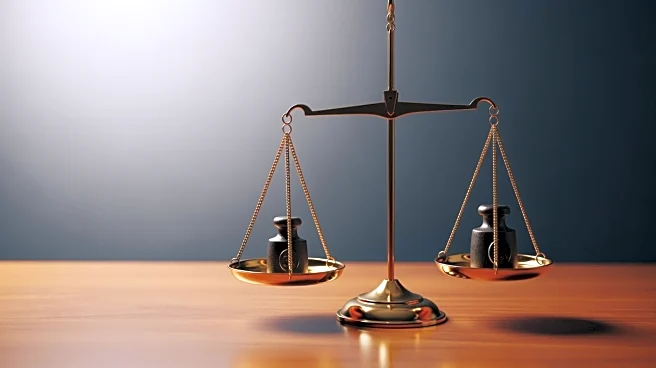What's Happening?
The U.S. Supreme Court is set to hear arguments regarding President Trump's imposition of tariffs under the International Emergency Economic Powers Act (IEEPA). The case questions whether the conservative majority will apply the same standards to Trump as it did
to President Biden in previous cases. Trump justified the tariffs by citing economic and national security crises, including trade deficits and the fentanyl crisis. The IEEPA, enacted in 1977, does not explicitly mention tariffs, but allows the president to regulate imports during emergencies. The case draws on precedents where the court required clear congressional authorization for significant economic actions, a principle known as the major questions doctrine.
Why It's Important?
The outcome of this case could have significant implications for presidential power and economic policy. If the court upholds the tariffs, it may set a precedent for broad presidential authority under emergency powers, potentially affecting future administrations' ability to enact similar measures. Conversely, if the court strikes down the tariffs, it could limit presidential discretion in economic matters, reinforcing the need for explicit congressional approval. This decision will impact businesses affected by the tariffs and could influence U.S. trade policy and international relations.
What's Next?
The Supreme Court's decision will likely influence how future administrations use emergency powers in economic contexts. Businesses and states challenging the tariffs hope to attract votes from the three Trump-appointed justices, emphasizing the need for vigilance under the major questions doctrine. The court's ruling could either affirm or challenge the appellate court's decision, which applied this doctrine to the tariffs. The case may also prompt legislative action to clarify the scope of presidential powers under the IEEPA.
Beyond the Headlines
This case highlights the ongoing debate over the balance of power between the executive and legislative branches. It raises questions about the extent of judicial deference to presidential declarations of emergency and the potential for overreach. The decision could influence how future courts interpret the major questions doctrine, particularly in cases involving foreign policy and national security, areas traditionally granted broad presidential discretion.

















